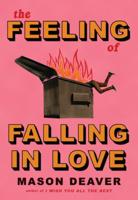Publisher's Synopsis
Excerpt from Tales and Traditions of Ayrshire and Galloway
The reader of these tales is not to suppose that, because they bear the title of Traditions of Ayrshire and Galloway, they possess little interest for the public, apart from that district of Scotland. Intelligent readers are aware that every tale must have a locality, and that if the imagination is allowed too wide a range, the author, no matter how great his literary attain ments, fails to produce the e?ect intended. If the subject which the writer selects is skilfully managed, it will find a sympathetic response in the hearts of men at the antipodes. Burns' Mouse and Daisy are common-place subjects, yet they excel, in my humble opinion, the greatest lyrics of any of our living poets, who generally delight more in high-sounding phrases than the language of the heart.
Let not the reader suppose that I wish to impress him with the idea that there is something strikingly original in this little book. By no means. I know its shortcomings as well as paterfamilias is supposed to know the faults and failings of his children. I may brie?y say, however, by way of enlisting the reader's sympathy, that the tales were written under all the disadvantages incidental to a wandering life, Whilst representing the press in the west and south of Scotland. But if the public accord to this book the kind reception which they gave to my Poems and Songs, I will be not only grateful, but endeavour shortly to bring before them tales of greater length, and deeper interest.
About the Publisher
Forgotten Books publishes hundreds of thousands of rare and classic books. Find more at www.forgottenbooks.com
This book is a reproduction of an important historical work. Forgotten Books uses state-of-the-art technology to digitally reconstruct the work, preserving the original format whilst repairing imperfections present in the aged copy. In rare cases, an imperfection in the original, such as a blemish or missing page, may be replicated in our edition. We do, however, repair the vast majority of imperfections successfully; any imperfections that remain are intentionally left to preserve the state of such historical works.










